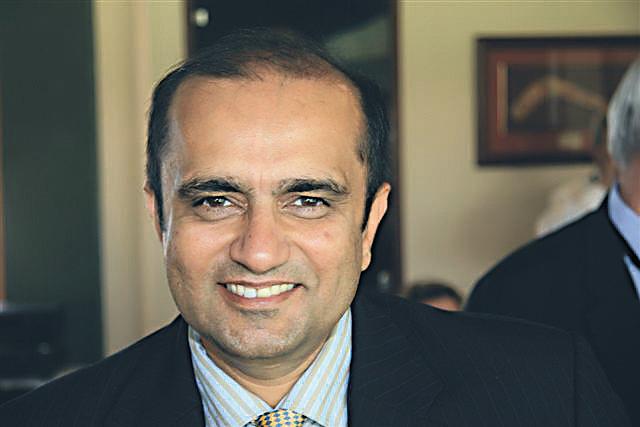
3 minute read
Evil flourishes when good people keep silent…
from 2012-08 Sydney (1)
by Indian Link
The shocking attack on a young African student now in peril questions India’s antipathy towards race intolerance within its own borders letter to the Punjab Chief Minister: “I sent him to your country to study. He was not out on the street to learn how to kill or steal. Whenever you (Badal) are with your own children, look at them and see my son Yannick who is dying here at such a tragically young age.”
Herbal Hair and Beauty (for ladies only)

Iam a trenchant critic of most of India’s countless television channels. A lot of them are unobjective, insulting, shrill, irresponsible, sensationalist and often unfair.
But, it warmed my heart recently to see them take up the matter of an African student who was mercilessly, viciously and without provocation, beaten up three months ago by some cowardly, drunken young goons in Jalandhar, Punjab. They were obviously well connected, as they managed to roam free for a couple of months after their dastardly deed.
Their victim, Yannick Nihangaza from Burundi was studying Computer Science at Lovely Professional University (yes, it is called that!), supposedly a leading private university with hundreds of overseas students.
The contrast between the sluggish (in) action of the Punjab and/or the Indian government and that of other countries could not be starker.
Two years ago, Indian student Shravan Kumar was a victim of what appeared to be a racially motivated attack. Australia granted him permanent residency status, entitling him to various benefits as a result.
Yannick survived the Burundian genocide and its 13-year civil war, but suffered such a fate in India where he came to study.
He has been in a coma for over 3 months now and not much hope is held for his recovery. As if that was not bad enough, his father Nestor Ntibateganya who flew in from Burundi in April to be by his son’s side, struggled to get help, justice or answers for two whole months from the callous Indian authorities.
Fortunately, the TV channels found out and then all hell broke loose for the perpetrators and prevaricators. Those who had hitherto ignored the issue finally sprung to attention and action:
1. The Police said they had made progress. Surely though, they must have known all along who the alleged culprits were? They were probably covering up as one of them, Romi Uppal, was the son of a Superintendent of Police. They have now made four arrests.
When an Australian teenager fatally stabbed Nitin Garg, an Indian student, the Victorian Supreme Court sentenced the teenager to 13 years in jail.
When Anuj Bidve was murdered in the United Kingdom and his family complained about delays in the processing of the case, the police sent two senior officers all the way to India to brief the relatives.
Punjab, on the other hand, took little action to address Yannick Nihangaza’s case, and the Indian public paid scant attention. It is unlikely that the reaction would have been so blasé had this happened to an Indian in Australia or in Burundi.

We don’t know yet if it was a racially motivated attack, but at the very least there should have been some sensitivity, urgency and compassion displayed by all concerned, and the wheels of justice should have been set in motion before the TV channels forced the State government and the Punjab Police to act.
If Nihangaza never wakes up, it will be hypocritical for India to claim that its honour has been besmirched the next time something like this happens to an Indian citizen overseas.
2. The Punjab Chief Minister Prakash Singh Badal at last found the time and the will to do something - after paying little heed to the matter for two months. He sent a top bureaucrat with Rs 5 lakhs for Yannick’s huge medical bills.
3. Even Burundi’s Ambassador to India, Rubuka Aloys (where was he for 2 months and what did he do?), publicly jumped into the fray. He went to India’s Ministry of External Affairs and requested assistance for Mr Ntibateganya to take his son home. What an unspeakable tragedy! Yannick survived the Burundian genocide and its 13-year civil war, but suffered such a fate in India where he came to study. His father Nestor made this point in his
The case betrays a mindset that tends only to the concerns of the rich and the powerful. It should have been a national outrage much sooner, and there needs to be serious public introspection on our own racist attitudes. Zero tolerance of xenophobia is imperative. It is hard to believe Yannick’s race and African origin were not factors in the tardy response of the system.
If Nihangaza never wakes up, it will be hypocritical for India to claim that its honour has been besmirched the next time something like this happens to an Indian citizen overseas.
Indians become very touchy and indignant when they hear about a person being attacked for being Indian or facing discrimination overseas because of skin colour or religion.
Should we not be as quick to respond when a guest in our motherland is treated with such shocking apathy?










